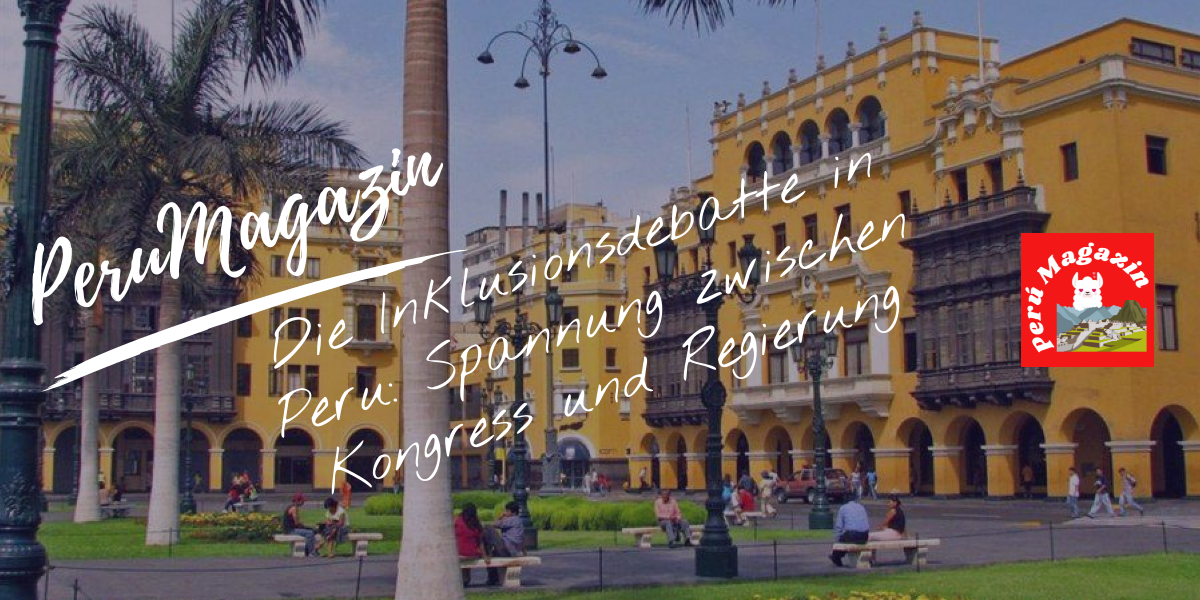
The Inclusion Debate in Peru: Tension between Congress and Government

The discussion about inclusive language has sparked a political controversy in Peru that is testing the relationship between Congress and the government. The recently passed law banning the use of inclusive language in school textbooks and official documents received a clear majority of 78-21 in Congress. But the Peruvian government, represented by Education Minister Miriam Ponce Cértiz, announced that it would ignore the law. This break between the legislative and executive branches not only raises questions about language policy, but also illuminates the tensions within the Peruvian political landscape.
The driving force behind the law is Representative Milagros Jáuregui de Aguayo, a well-known pro-life and family advocate. In her argument she emphasizes that non-ideological communication in the Spanish language is necessary to avoid confusion in reading comprehension. During the congressional debate, she explained that the fragmentation of language not only leads to poor communication but also affects reading comprehension among students.

“As a woman, I can tell you that I do not believe that the use of any article makes us more visible or allows us to fight for equality,” said Ms. Jáuregui de Aguayo. She was referring to the opinion of the Peruvian Language Academy, which also speaks out against ideologized language.
The question here is whether inclusive language actually contributes to improving equality or whether, as advocates of the law claim, it can lead to confusion and loss of reading comprehension. It seems that Congress is determined to free the language from ideological influences, while the government under Minister Ponce Cértiz maintains the position of inclusive language.
Representative Jáuregui de Aguayo expressed her satisfaction on social networks after the vote, but the real conflict began when Education Minister Ponce Cértiz declared that the law was not being respected. She emphasized that the Ministry of Education already has a clear position on inclusive language and that certain positions are simply incompatible. Here it becomes clear that the disagreements over language policy in Peru are not just a theoretical debate, but can have a direct impact on the implementation of laws.
However, the issue of inclusive language is not limited to Peru. There is debate worldwide about whether ideologized language is necessary to promote social equality or whether, as is argued in Peru, it can lead to confusion and a loss of reading comprehension. The Peruvian debate reflects these global discussions and raises the question of whether it is possible to find a compromise that takes into account both the need for equality and the concern for the clarity and understandability of language.
The government's decision to ignore the law could lead to further tensions between political institutions. It remains to be seen whether this will lead to legal consequences or an open dialogue between Congress and the administration. The situation makes it clear that the question of language policy is not just linguistic and pedagogical, but has deeper political and social implications.
It is important to emphasize that the debate on inclusive language is not just a matter of words, but a matter of values and vision for society. The conflict in Peru highlights how different political actors have different ideas about how language should be used to promote social change. It remains to be hoped that Peru's political leaders will find a way to find a constructive solution to this controversy, taking into account both concerns about ideology and demands for equality.
#PeruMagazine #Peru #InclusiveLanguageDebate #PeruPolitics #LanguagePolitics #CongressVsGovernment #Equal Rights #Language Fragmentation #IdeologyFreeCommunication #Reading Comprehension #PoliticalTensions #PeruvianCongress #Government Conflict #SocialValues #PeruvianDebate #EducationMinister #Language AcademyOpinion #WeLovePeru #patop #patopversand


Leave a comment